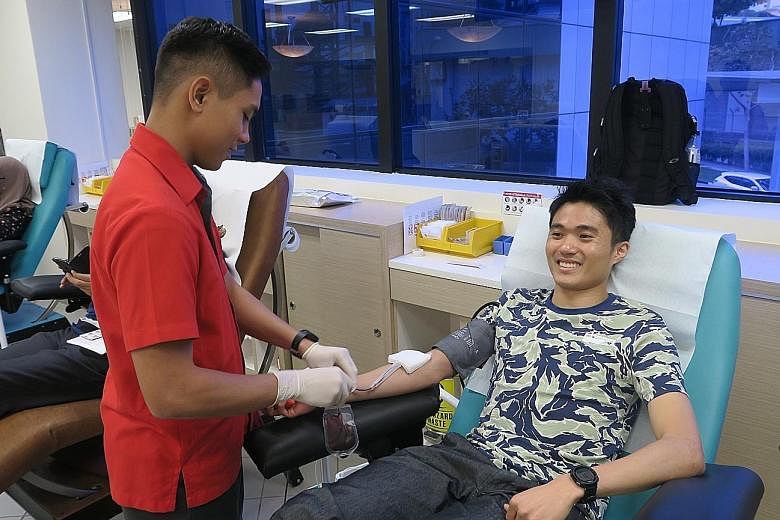Our body holds about five litres of blood. For every blood donation, one unit (or 450ml) is withdrawn.
IMPACT OF BLOOD DONATION
According to a 2016 meta-analysis published in the Journal of Blood Transfusion, the haemoglobin (Hb) concentration in our bodies is reduced by 7 per cent after a blood donation. The Hb concentration in our bodies then gradually returns to normal over the next two weeks.
This is expected, but how exactly does this impact your performance as a runner?
EFFECT ON PERFORMANCE
A reduced Hb concentration will result in lower oxygen-carrying capacity. There is no doubt that your running prowess will be affected.
In 1995, a study published in the American Heart Journal evaluated 10 male cyclists before and after donating blood to test the effect of blood donations on exercise performance. Results showed a decrease in the maximal performance of all the cyclists for at least a week.
More recently, in 2016, a randomised controlled trial published in the Sports Medicine Journal found that maximal power output, peak oxygen consumption and Hb mass decreased for up to four weeks after making a blood donation.
Interestingly, both studies found that the submaximal performance of their test subjects was not affected.
-
#AskMok
-
ANONYMOUS
Can runners donate blood? Will it affect my performance?
-
ANONYMOUS
How long will I take to recover completely and run again, if I've donated blood?
Therefore, if you are a recreational athlete exercising at submaximal intensity, you should not have any negative experiences other than a higher-than-usual heart rate.
RECOVERING FROM DONATION
To recover faster after a blood donation, you may consider taking iron supplements.
A randomised controlled trial was conducted to investigate the effectiveness of iron supplements following a blood donation.
The results were published in the highly-regarded Journal of American Medical Association in 2015 and it was found that with iron supplementation, Hb recovery time was halved from a mean of 78 days to 31 days.
More drastically, for people who usually have low iron levels, their Hb recovery time dropped from a mean of 158 days to just 32 days.
MAKING A DONATION
As you can see, your running performance is not necessarily a barrier to donating blood.
If you are a competitive runner aspiring to set personal records, I would still encourage you to make a blood donation.
You can plan your blood donation based on your running calendar. For example, you can do it right after a major marathon, as you would need downtime to recover from your race anyway.
Once you are physically ready to get back into training, your Hb levels should be ready too. However, if you have any reservations, an alternative would be to make a plasma donation, which will not affect your Hb levels at all.
You can run and donate blood.
Every hour, the hospitals in Singapore require 14 units of blood to save lives. Let's give our precious blood to someone who may need it for survival today.
You can make a blood donation at any of the four blood banks or at a community blood donation drive near you.


